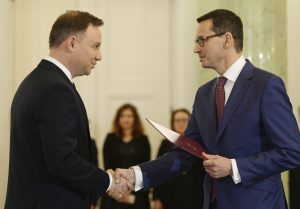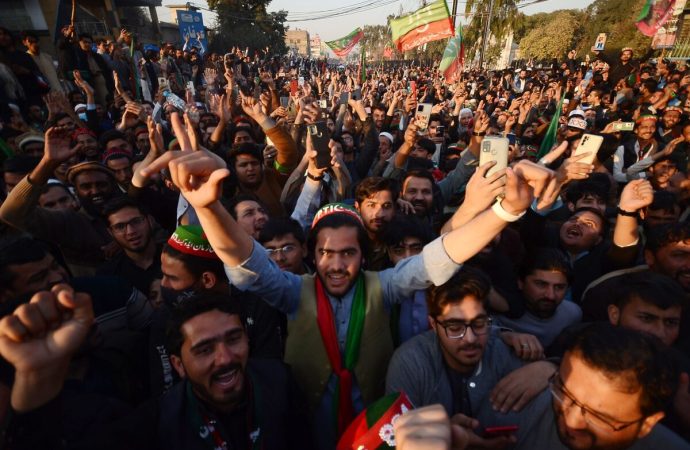In recent years, the global landscape has witnessed a surge in efforts aimed at safeguarding democratic processes, particularly in nations grappling with fragile democratic institutions. Among the key players in this arena stands the United States, wielding its influence to support and monitor elections in countries navigating the delicate path toward democracy. This article delves
In recent years, the global landscape has witnessed a surge in efforts aimed at safeguarding democratic processes, particularly in nations grappling with fragile democratic institutions. Among the key players in this arena stands the United States, wielding its influence to support and monitor elections in countries navigating the delicate path toward democracy. This article delves into the escalating role of the US in election monitoring, particularly in nations where democracy teeters on the brink of instability.
The Imperative of Election Monitoring

Image by: https://rmx. news
Free and fair elections are the cornerstone of any thriving democracy. Yet, for nations emerging from periods of authoritarian rule or internal strife, ensuring the integrity of electoral processes can be a formidable challenge. Electoral monitoring serves as a vital tool in upholding democratic principles, providing oversight to mitigate electoral fraud, irregularities, and violence. Recognizing the pivotal role of election monitoring in bolstering democratic transitions, the US has increasingly intensified its efforts in this sphere.
Expanding US Involvement
Traditionally, the US has played a significant role in election monitoring through international organizations such as the United Nations and the Organization for Security and Co-operation in Europe (OSCE). However, in recent years, the US has adopted a more proactive approach, independently deploying monitoring missions in countries deemed critical to global democratic stability. This shift underscores the nation’s commitment to fostering democratic governance worldwide.
Challenges and Criticisms
Despite noble intentions, US election monitoring initiatives have not been without controversy. Critics argue that such interventions may be perceived as encroachments on national sovereignty, fueling accusations of neocolonialism or partisan interference. Moreover, concerns have been raised regarding the consistency and impartiality of US monitoring efforts, with allegations of selective engagement based on geopolitical interests.
Enhancing Effectiveness through Collaboration
To address these challenges and bolster the effectiveness of election monitoring endeavors, collaboration between the US and other international stakeholders is imperative. By partnering with regional organizations and local civil society groups, the US can leverage local expertise and legitimacy, fostering a more inclusive and credible monitoring process. Such collaborative efforts not only enhance the legitimacy of monitoring missions but also strengthen the broader framework for democratic governance.
Adapting to Evolving Challenges
The landscape of electoral monitoring is continually evolving, presenting new challenges that demand innovative approaches. In an era marked by technological advancements and evolving forms of disinformation, the task of ensuring the integrity of elections has become increasingly complex. Recognizing this reality, the US has endeavored to adapt its monitoring strategies, incorporating digital monitoring tools and cybersecurity measures to address emerging threats. By staying abreast of technological developments and evolving methodologies, US election monitoring efforts can remain effective in safeguarding democratic processes against modern-day challenges.
Looking Ahead: Sustaining Democratic Momentum
As the US continues to navigate its role in supporting fragile democracies, the importance of sustained engagement and long-term investment cannot be overstated. Democratic transitions are often fraught with setbacks and obstacles, requiring consistent support and vigilance to ensure progress. Beyond the immediate focus on election monitoring, efforts to strengthen democratic institutions, promote civic education, and foster inclusive political dialogue are essential for laying the groundwork for enduring democratic governance. By staying true to its democratic ideals and collaborating with international partners, the US can play a vital role in sustaining democratic momentum and advancing the cause of freedom and justice worldwide.
Analysis Table: US Election Monitoring in Fragile Democracies
| Criteria | Analysis |
|---|---|
| Scope of Monitoring | Extensive, often involving pre-election assessments, observation on election day, and post-election analysis. |
| Impartiality | Subject to scrutiny, with accusations of bias or selective engagement based on geopolitical interests. |
| Collaboration | Increasing emphasis on partnering with local stakeholders and international organizations to enhance legitimacy and effectiveness. |
| Transparency | Efforts made to ensure transparency through public reporting and dissemination of findings. |
| Impact | Varied, with instances of positive influence on electoral integrity and democratic processes, but also criticisms and controversies. |
Comparative Table: US vs. International Election Monitoring Efforts
| Criteria | US Monitoring | International Monitoring |
|---|---|---|
| Scope of Operations | Independent missions in select countries | Often conducted through international organizations like the UN and OSCE |
| Funding | Primarily financed by the US government | Supported by contributions from member states and international donors |
| Impartiality | Susceptible to accusations of bias | Strives for impartiality through diverse composition and adherence to protocols |
| Geographic Focus | Global reach, with emphasis on regions of strategic importance | Broad coverage across continents, with focus on regions with democratic deficits |
| Coordination | Collaboration with local stakeholders and international partners | Coordination among member states and adherence to common standards |
Conclusion
As the world grapples with the challenges of democratic consolidation, the role of election monitoring has assumed heightened significance. In this context, the US has emerged as a pivotal actor, leveraging its resources and influence to support fragile democracies worldwide. While criticisms persist, collaborative efforts and a commitment to transparency can enhance the credibility and impact of US election monitoring initiatives, ultimately contributing to the advancement of democratic governance on a global scale.
















